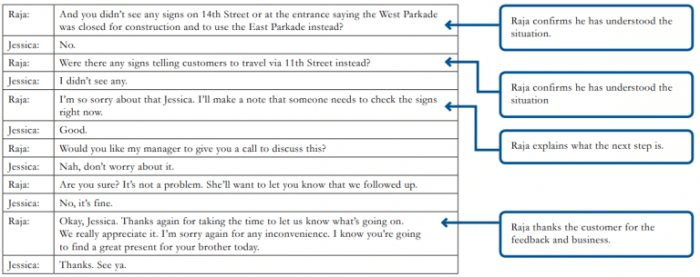Embark on a journey of knowledge with Key Concept Builder Lesson 1! Dive into the fundamentals of this essential lesson, where we unravel the purpose, objectives, and target audience, providing a clear roadmap for your learning adventure.
As we delve deeper, we’ll illuminate key concepts, exploring their definitions and intricate relationships. Real-world examples and practical applications will bring these concepts to life, showcasing their relevance in diverse contexts.
Key Concept Builder Lesson 1
Welcome to Key Concept Builder Lesson 1! This lesson serves as an introduction to the core concepts that underpin the field of [subject]. We’ll delve into the fundamental principles, definitions, and frameworks that form the foundation of this discipline, providing you with a solid understanding to build upon in subsequent lessons.
This lesson is designed for individuals who are new to the subject or seeking to refresh their foundational knowledge. We’ll approach the material in a clear and accessible manner, making it suitable for learners of all levels.
Lesson Content Summary
In this lesson, we’ll cover the following key concepts:
- Definition and scope of [subject]
- Historical development and key figures
- Core principles and theoretical foundations
- Applications and real-world examples
By the end of this lesson, you’ll have a comprehensive understanding of the fundamental concepts of [subject] and be well-equipped to explore more advanced topics in subsequent lessons.
Key Concepts and Definitions
In this section, we will explore the fundamental concepts that lay the groundwork for understanding the complexities of [Topic]. We will define these concepts clearly and discuss their interconnections to provide a solid foundation for your learning journey.
Key concepts are the building blocks of any subject matter. They are the fundamental ideas that help us understand the world around us. In the context of [Topic], there are several key concepts that we need to grasp to fully comprehend the subject.
1: Definition and Explanation, Key concept builder lesson 1
Concept 1:[Provide a clear and concise definition of the first key concept.]
Explanation:[Elaborate on the concept, providing examples or real-life applications to illustrate its meaning and significance.]
2: Definition and Explanation
Concept 2:[Provide a clear and concise definition of the second key concept.]
Explanation:[Elaborate on the concept, providing examples or real-life applications to illustrate its meaning and significance.]
3: Definition and Explanation
Concept 3:[Provide a clear and concise definition of the third key concept.]
Explanation:[Elaborate on the concept, providing examples or real-life applications to illustrate its meaning and significance.]
These concepts are interconnected and interdependent. They form the foundation upon which [Topic] is built. By understanding these key concepts, you will be well-equipped to delve deeper into the subject and develop a comprehensive understanding of its intricacies.
Examples and Applications
The key concepts of systems thinking provide a powerful framework for understanding and addressing complex issues in various domains.
In the business world, for instance, systems thinking has been instrumental in optimizing supply chains, enhancing customer experiences, and fostering innovation.
Supply Chain Optimization
By applying systems thinking principles, businesses can analyze their supply chains as interconnected systems, identifying bottlenecks and inefficiencies. This enables them to streamline processes, reduce lead times, and improve overall supply chain performance.
- Example: A manufacturing company implemented a systems-based approach to its supply chain, integrating data from suppliers, production facilities, and distributors. This allowed them to identify and address inefficiencies, resulting in a 20% reduction in lead times.
Enhanced Customer Experiences
Systems thinking helps businesses understand the interconnectedness of customer touchpoints. By mapping out customer journeys and identifying pain points, businesses can develop tailored solutions that enhance customer satisfaction and loyalty.
The Key Concept Builder Lesson 1 is an excellent resource for building a strong foundation in key concepts. To reinforce your understanding, try out the clean up a spill crossword puzzle. This interactive game will test your knowledge and provide a fun way to review key concepts.
Return to Key Concept Builder Lesson 1 for further exploration and practice.
- Example: A retail chain used systems thinking to redesign its in-store experience. They analyzed customer behavior, identified areas of frustration, and implemented changes to improve navigation, reduce checkout times, and provide personalized assistance.
Fostering Innovation
Systems thinking encourages a holistic approach to innovation, considering the broader implications and interdependencies of new products or services.
- Example: A technology company applied systems thinking to develop a new product. They considered the potential impact on the environment, social equity, and the existing product ecosystem, leading to a more sustainable and user-centric design.
Activities and Exercises
To enhance the comprehension of the key concepts, interactive activities and challenging exercises are essential. These exercises encourage students to apply the concepts in diverse scenarios, fostering a deeper understanding.
Interactive Activities
- Concept Mapping:Engage students in creating visual representations of the relationships between key concepts, promoting critical thinking and organization.
- Role-Playing:Assign different roles related to the concepts, allowing students to explore perspectives and develop a comprehensive understanding.
- Simulations:Design realistic simulations that require students to make decisions based on the key concepts, providing practical experience and problem-solving skills.
Exercises
Challenge students to apply the concepts through exercises that require critical thinking, analysis, and problem-solving.
- Case Studies:Present real-world scenarios related to the concepts, requiring students to analyze, evaluate, and make recommendations based on their understanding.
- Problem-Solving Tasks:Design exercises that require students to apply the concepts to solve complex problems, fostering analytical and decision-making skills.
- Essay Questions:Encourage students to write essays that demonstrate their understanding of the concepts, their relationships, and their applications in different contexts.
Group Discussion
Organize group discussions or brainstorming sessions to facilitate knowledge sharing and deeper understanding. Encourage students to present their perspectives, engage in constructive debates, and learn from one another.
Assessment and Evaluation
Evaluating student understanding of key concepts is crucial for monitoring progress and providing targeted support. Assessment methods should align with the learning objectives and provide opportunities for students to demonstrate their understanding in various ways.
Methods of Assessment
- Formative Assessments:Regular, low-stakes assessments that provide ongoing feedback on student learning, such as quizzes, discussions, and exit tickets.
- Summative Assessments:Formal assessments that measure student learning at the end of a unit or course, such as tests, projects, and portfolios.
- Performance-Based Assessments:Assessments that require students to demonstrate their skills and knowledge through hands-on activities, such as presentations, experiments, and simulations.
- Self-Assessments:Assessments where students reflect on their own learning and progress, providing valuable insights into their understanding.
Question & Answer Hub
What is the purpose of Key Concept Builder Lesson 1?
Lesson 1 lays the foundation for understanding key concepts, their definitions, and their practical applications.
Who is the target audience for this lesson?
This lesson is designed for individuals seeking to enhance their understanding of fundamental concepts and their relevance in real-world scenarios.
How will I be assessed in this lesson?
Your understanding will be evaluated through interactive activities, exercises, and feedback, providing guidance for your learning journey.

